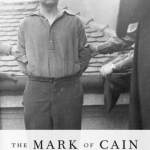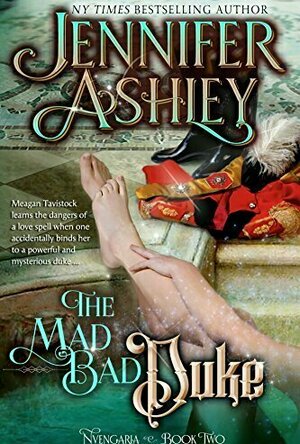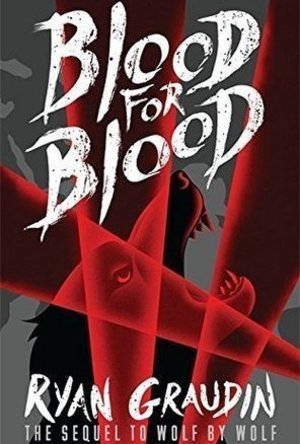Hazel (1853 KP) rated Blood for Blood (Wolf By Wolf #2) in Books
Dec 17, 2018
Ryan Graudin blew readers away with her alternate historical novel <i>Wolf by Wolf</i>. Now it is time to conclude the imaginative narrative with the highly anticipated sequel, <i>Blood for Blood. </i>Continuing from the precise moment Yael pulled the trigger on the Führer’s doppelgänger, the reader is thrown into a lively story of twists and turns, where danger lives around every corner.
To recap, it is 1956 and Hitler has won the war. Germany, or Germania, is ruling over Europe and many countries in Asia and Africa. Yael is a Jewish girl who a doctor experimented on whilst she was detained in a concentration camp. As a result of the brutal medical treatment, Yael is a successful result of the Doppelgänger Project – she can now change her physical appearance and anatomy at will.<i> Wolf by Wolf</i> focused on Yael and the resistance’s attempt to win a prestigious motorcycle race in order to get close to the Führer and end his life. As it turns out, Yael is not the only person with this skin shifting ability.
On the run with the entire world knowing her secret, Yael is desperate to make contact with the resistance leaders and continue with their plot to assassinate Hitler. However, unable to leave innocent people to suffer at the hands of the National Socialists, Yael ends up being accompanied and hindered by two Aryan boys, Luka and Felix. Yet with no way of knowing who can be trusted, Yael is taking a fatal risk by helping others instead of saving herself.
Despite circumstances, the blossoming romance that began to advance toward the end of the first book continues to feature in <i>Blood for Blood</i> as characters begin to rely on and trust each other. Nonetheless, constant plot developments obstruct all thoughts of a happy ending. Clever twists and gradually emerging truths prevent any opportunity for rest or safety.
<i>Wolf by Wolf </i>was an exciting, new concept for young adult readers, answering a “what if” question about the second world war. Yet the historical setting – albeit fictional – was impeded by the focus on the Axis Tour as characters raced from Germania to Tokyo. In contrast, <i>Blood for Blood</i> leaves all distractions behind, giving full attention to the life and danger under Hitler’s dictatorship. Despite Germany/Germania’s triumphant win, war is still raging throughout Europe. Anyone not meeting the Aryan description is at risk of death or deportment. Strictly speaking, the situation described must look similar, if not the same, as the true result of Nazi ruling.
Ryan Graudin is a formidable writer with the ability to make fiction seem like reality. Despite the added science fiction twist, the imaginative scenario is so well researched and planned that it becomes almost believable. Graudin comes at the story from so many directions, evidencing the effort put into creating the thrilling plot. It is one thing to be able to string words together, but to make them come alive it takes a genius.
<i>Blood for Blood</i> is by far the better of the two novels, making it the perfect conclusion to a fantastic two-part story. Beginning with explosive action and not stopping until its heart-wrenching conclusion, <i>Blood for Blood</i> will satisfy readers of all ages and genres. Those who have read <i>Wolf by Wolf</i> definitely must get their hands on this amazing sequel. You will not be disappointed.
Hadley (567 KP) rated A Luminous Republic in Books
Aug 13, 2020
We first meet our main character, whose name is never given throughout the entire story, when he and his family are moving to San Cristobal because of a job opportunity. He works for the Department of Social Affairs, and has just received a promotion because he has come up with a very successful plan: " I had developed a social integration program for indigenous communities. The idea was simple and the program proved to be an effective model; it consisted of granting the indigenous exclusive rights to farm certain specific product." Our main character believes that this plan will bring the farmers more money. And he is more than happy to go back to the city where he fell in-love with his now wife, Maia - - - a violin teacher who had a daughter before meeting him, who he calls 'girl' throughout the story because she is also named Maia.
While on his way to work one day, our main character comes across one of the unknown children of the jungle, which shakes him up a bit. The unknown jungle children were known to beg at street lights for money and food, but one of the grimy, frizzy-haired boys stared the man down, only to end up giving him a very wide smile. "The boy's smile unsettled me because it confirmed that there had been a connection between us, that something had begun in me ended in him." Pretty soon after, he begins to notice these unknown jungle children running around a lot more, and that sometimes their intentions are not always innocent - - - he and the 'girl' witness an elderly woman get robbed of her groceries by a group of these children in the middle of the street in a subtle but violent way.
The unknown jungle children soon begin to rob several people,and when a police officer is killed while being attacked by them, the Mayor and the police want the children off the streets as soon as possible. Working with our main character, the former and the latter try to figure out the strange language these children use, whom may be the leader among them, and where they disappear to at night. Since the story is being told from our main character's past, the book is written like a True Crime story, with names of professionals and such being cited throughout. Our main character brings up a woman, who was a young girl at the time of the jungle children's invasion on San Cristobal: Teresa Otano, who happened to 'publish' her diary from that time, which gives readers insights into the jungle children: "Often, some of the thirty-two [jungle children], on their nightly journey back to the jungle, congregated next to Teresa's house, on one corner of Antartida Avenue. At first, Teresa, enthralled, simply makes notes, logging the days on which they appeared, whether there were three, four or five of them, what they were wearing, and so forth. She establishes patterns and identifies a few of the kids..." our main character explains to the reader.
But soon, the children cross a line that they can never come back from; being told by our main character from the view of surveillance video tapes, he describes to us that the jungle children entered a supermarket after an incident with a guard that works there, they block the entrance doors and begin to destroy items throughout the store, but the chaos quickly escalates, and two adults are murdered by the children - - - fear now holds the town in its grip, causing search parties to sweep through the dense jungle after the children fled.
But murder wasn't something new to San Cristobal, our main character explains to us that the suburbs of this area usually had a murder a week all year long, and that on the outskirts of the jungle, there were known spots for drug trafficking and assaults. What made the 'Dakota Supermarket' murders scare the town was that the residents' own children began to behave differently afterwards - - - they start to play a 'game' where they put their ears to the ground, believing that they can hear the jungle children talking to them. Our main character even walks in on the 'girl' playing this exact game. "For a second it was as if I were witnessing a ritual invented by a twelve-year-old girl, and I thought of how afraid my daughter must have felt when I found her in the bathroom that day. People often remark on the self-assured quality of the invocation, its instruction-manual tone, but I'd say that its intensity actually stems from what it dispenses: adult logic, a world that no longer serves. How could our children possibly have explained to us what they were doing? We weren't prepared for their world or their logic. Somewhere out there, underground, that dissonant sound was being sent, in code: down below, chaos. "
This phenomenon attracts the attention of money/fame seekers, which includes the Zapata children. Four siblings, ranging from the ages of five to nine, claimed that the jungle children were speaking to them through their dreams. They would make drawings from what they were told by the jungle children, but state that even they didn't know what the drawings meant. The media quickly jumped on them and put them in front of a camera, causing the family's home to be surrounded by civilians at all hours of the day and night. One night, the crowd outside becomes anxious, and breaks into the house, stealing not only the drawings from the Zapata children, but also the life savings of the family. At this point, the Zapatas had had enough, and retreat from the story altogether for reasons I won't disclose here. I can't give away much more of the book without ruining the story.
Barba's attempt at making a different kind of Lord of the Flies was done well, but the lack of emotion is felt throughout the entire story which makes the characters flat, especially our main character, who I didn't find likable in any such way. He calls a grieving woman a 'whore,' and he seems rude towards his family, especially his step-daughter.
A Luminous Republic is redeemed by is unpredictability, which is something that doesn't come along in fiction that often anymore. I enjoyed that the story was written like a True Crime novel, with fictitious documentaries, news reports and books. So, I would recommend this book to people who like True Crime and Mysteries.

For the Love of Sauntress: A Forty-Year Affair
Book
"I wonder if you can help me." "Maybe I could, or maybe I couldn't," was the very Welsh reply. "What...
Merissa (13786 KP) rated Shadow Seer (Blood Shadows #2) in Books
Nov 21, 2022
Oh, man. She's only gone and done it again! Jennie Lynn Roberts is an outstanding author, in my humble opinion. I haven't read a bad book of hers yet and doubt I ever will. Although not fantasy per se, this is an amazing story. It changes the way you look at shadows, that's for sure. They sound so beautiful, I wish I could see them for myself!
There is so much intrigue here. So many machinations, people being played like puppets, and others fighting the good fight. It is intricate, leading you along through a maze of words as you try to work out what the final objective is.
Zach and Emma are just as perfect together as Kay and Ethan are. Zach acts like a first-class jerk at one point though, and I was glad Emma was so strong. She stood by her convictions, even though she wanted Zach at her side, and he had faltered. With the others by her side, I think Emma is going to grow into a force to be reckoned with, and I can't wait to see her develop in James' story. (Or, at least, I hope!)
And speaking of James, he's gone from a character I didn't much like, to one who is breaking my heart as he tries to the do right thing. Read these two books and you'll see what I mean.
No mid-trilogy slump for this series, oh no. Instead, it's a nail-biting, gripping story that will keep you turning the pages and definitely leave you wanting more. HIGHLY recommended by me.
** same worded review will appear elsewhere **
* A copy of this book was provided to me with no requirements for a review. I voluntarily read this book, and the comments here are my honest opinion. *
Merissa
Archaeolibrarian - I Dig Good Books!
Purple Phoenix Games (2266 KP) rated Mob Sitters in Tabletop Games
Sep 17, 2019
Disclaimer: This preview is based upon a preview copy of the game. The final components, rules, and gameplay may differ from those described in this review! -L
In Mob Sitters, you take on the role of a babysitter working for the mob. Just because crime pays the bills doesn’t mean these mobsters don’t have families! You’re no ordinary babysitter though, otherwise you wouldn’t be mixed up with the mob. You’ve got plans of your own – whether it’s stealing from your boss, ratting out your rivals to the cops, or actually just some innocent babysitting, there’s money to be made here!
Mob Sitters is played over six rounds in which you take turns playing cards (some hidden and some not), targeting or reacting to your opponents, and collecting that sweet sweet money. Let’s break it down. To start the game, each player receives a player mat and deck of cards for their chosen character. There will be 8 characters in the final game, but only 6 are present in the preview copy. The different characters do not have any special powers or abilities, they just have different artwork on their cards! Shuffle your decks, draw a hand of 6 cards, determine a starting player, and you’re ready to go.
Each player’s turn consists of 6 steps (Steps 1-3 are not applicable in round 1, and Steps 4-6 are not applicable in the final round). Step 1 is to earn money – any cards with a monetary value that are in your play area are moved to your Safe and will count towards end-game scoring. It is important to note that cards that earn you money (Steal and Job cards) must be played face-up into your play area. Step 2 is to reveal and resolve any Accusation cards in your play area that you want to. Accusation cards allow you to target an opponent’s Job/Steal card currently in play, in an attempt to discard it to their Cops/Boss piles, respectively, to count against that player in end-game scoring. The targeted player does not have to sit idly by and watch their money go down the drain, however. If the targeted player has a Reaction card face-down in their play area, they may reveal it to deflect the blame to yet another player! If you successfully deflect the blame, that money will not count against you, but will instead count against the next player blamed who is unable to react to and shift blame to someone else. To play a Reaction card, it must already be in your play area – you cannot play one directly from your hand! The next step, Step 3, is to discard any remaining face down cards in your play area. In Step 4, you choose 3 cards from your hand and play them into your play area. Job/Steal cards must be played face-up, but Accusation and Reaction cards can be played face-down. During Step 5, you resolve any face-up accusation cards you may have played in Step 4. The final step, Step 6, of your turn is to draw 3 cards, bringing your hand back up to 6 cards. Play then moves on to the next player, who then will perform their 6 steps, and so on. After 6 rounds, the game ends. Scoring varies depending on how many players there are, but ultimately the winner is the player with the most money in their safe!
I know that sounds like quite a lot going on, but believe me when I say the game plays pretty well (and pretty quickly) once you’ve gotten the hang of the turns. On paper, the sheer number of steps per turn seems excessive and like it would bog down the gameplay, but in actuality, the actions performed in each step are simple and fast. Perhaps if the number of steps were condensed from 6 down to maybe 3-4, the gameplay would seem a little less daunting. There is some slight ambiguity between the types of cards and into which stacks they go – the rules call cards Job and Steal cards, but the player mat refers to Boss and Cop cards. Fortunately the cards have symbols that correspond to the different stacks, so when in doubt, check the corner of the card!
Let’s talk components. This is first and foremost a card game, and the cards I received are of good quality! They shuffle well, and feel sturdy enough to withstand many plays. The art on the cards is pretty cute, the colors really pop, and there are some fun puns to be found on several Steal/Job cards. As for the player mats, this is only a preview copy of the game so I just printed them out (apologies for my lack of access to a color printer!), but their text is clear and helpful for remembering turn steps. The components may change throughout the Kickstarter campaign, but so far they’re off to a good start!
So how does it play? For the most part, Mob Sitters plays pretty quickly and is engaging for all players. There’s a good amount of strategy involved, as well as some luck and a whole lotta take that. All players receive identical decks of cards, which are then shuffled, so although you know what cards are available to your opponents, you never know what they currently have in their hand. You’ve got to be watchful of which cards your opponents play, to see if you can deduce which cards they have remaining. Are they taking the offensive approach and accusing everyone? Or are they being more subtle and taking a defensive stance, deflecting all accusations onto others? You have to decide when is the right time to play your cards to ensure that you aren’t targeted by too many opponents. Your strategy is ever-changing to adapt to the cards currently in your hand, and that’s what takes Mob Sitters to the next level for me.
Mob Sitters is a quick, easy, and fun game for any sized group. Hilarity ensues when accusations result in all players pointing fingers and trying to deflect blame. Although it can be played with 3, I think this game is better suited for 4+ players. With a smaller group, some of the aspects of ‘take that’ can feel personal and lead to tension between players. But a larger group can eliminate some of the animosity caused by always being targeted by the same person the entire game. Overall though, I enjoyed getting to play Mob Sitters! It has a unique theme and simple, yet strategic, gameplay that will keep all players on their toes. In my communications with the designer, I have learned that the retail version of the game will include “Hidden Agenda” cards to provide each player with a secret objective. There is also an expansion already in the works – The Heavy Mob Deck – that will add more cards and more complexity for experienced gamers!
If you enjoy games of hidden information, take that, and a little bit of bluffing, definitely check Mob Sitters out! It’s more than the standard party game, but still fits the categories of light, fast, and easy to learn games for all players. I look forward to following this upcoming campaign, and I definitely will be playing my copy again!

The Mark of Cain: Guilt and Denial in the Post-war Lives of Nazi Perpetrators
Book
The Mark of Cain fleshes out a history of conversations that contributed to Germany's coming to...

The Suspect: An Olympic Bombing, the FBI, the Media, and Richard Jewell, the Man Caught in the Middle
Kent Alexander and Kevin Salwen
Book
The masterful true-crime account of the 1996 Centennial Olympic Park bombing that captured the...

The Mad, Bad Duke (Nvengaria, #2)
Book
London, 1820 Miss Meagan Tavistock doesn’t believe the talisman her friend purchases from a...

Angry Shark Simulator 3D
Games and Entertainment
App
For the first time, YOU get to be on the evil side, become a vicious blood thirsty SHARK. With all...

The Girl in the Pink Shoes (Lucy Kendall #1)
Book
My baby girl. This morning she was so excited for school. I bought her new shoes last night. Pink,...



